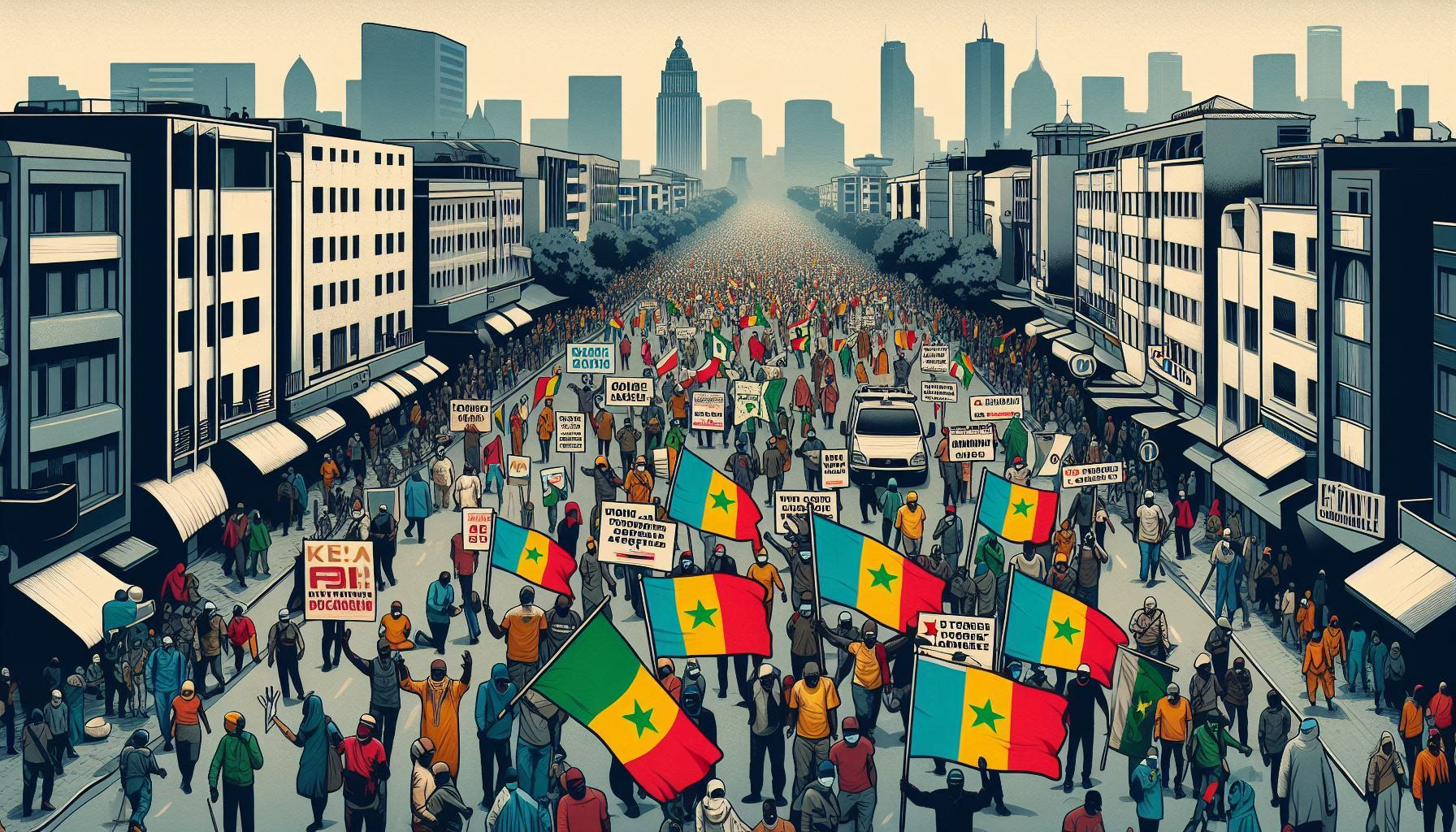Senegal, a West African nation of about 16 million people, is widely regarded as one of the most stable and democratic countries in the region. It has a history of peaceful transfers of power, a vibrant civil society, and a strong opposition. However, in recent weeks, Senegal has been rocked by a wave of protests and violence that have left at least 10 people dead and hundreds injured .
The trigger for the unrest was the arrest of Ousmane Sonko, a popular opposition leader and former presidential candidate, who was accused of rape by a massage therapist. Sonko, who denies the allegations and claims they are politically motivated, has a large following among the youth and the poor, who see him as a champion of anti-corruption and social justice. His supporters took to the streets to demand his release and clashed with security forces, who used tear gas, rubber bullets, and live ammunition to disperse them.
 The crisis has exposed the deep-seated grievances and frustrations of many Senegalese, who feel betrayed by the ruling party and President Macky Sall. Sall, who was elected in 2012 and re-elected in 2019, has been accused of undermining democracy and the rule of law by delaying the parliamentary and local elections that were due in February 2023, dissolving the constitutional council, and cracking down on dissent . Many also blame him for the economic hardship and inequality that have been worsened by the COVID-19 pandemic and the decline in tourism and remittances.
The crisis has exposed the deep-seated grievances and frustrations of many Senegalese, who feel betrayed by the ruling party and President Macky Sall. Sall, who was elected in 2012 and re-elected in 2019, has been accused of undermining democracy and the rule of law by delaying the parliamentary and local elections that were due in February 2023, dissolving the constitutional council, and cracking down on dissent . Many also blame him for the economic hardship and inequality that have been worsened by the COVID-19 pandemic and the decline in tourism and remittances.
The situation in Senegal has implications not only for the country itself, but also for the region and the world. Senegal is a key partner of the international community in the fight against terrorism, migration, and climate change. It hosts several foreign military bases, including those of France, the United States, and Turkey, and contributes troops to peacekeeping missions in Mali and other countries . It is also a major exporter of fish, peanuts, and phosphate, and has recently discovered significant oil and gas reserves that could transform its economy.
Therefore, it is in the interest of all stakeholders to help Senegal resolve its crisis peacefully and democratically, and to support its development and stability. The African Union, the Economic Community of West African States (ECOWAS), and the United Nations have all called for dialogue and restraint, and offered their mediation services . The civil society, the religious leaders, and the media have also played a positive role in calming the tensions and facilitating the talks.
 The Senegalese people have shown remarkable resilience and maturity in the face of adversity, and have a proud tradition of defending their rights and freedoms. They deserve to have a voice in their future, and to enjoy the benefits of democracy and development. We hope that their leaders will listen to them, and that their country will emerge stronger and more united from this crisis.
The Senegalese people have shown remarkable resilience and maturity in the face of adversity, and have a proud tradition of defending their rights and freedoms. They deserve to have a voice in their future, and to enjoy the benefits of democracy and development. We hope that their leaders will listen to them, and that their country will emerge stronger and more united from this crisis.



